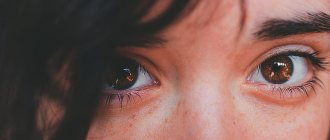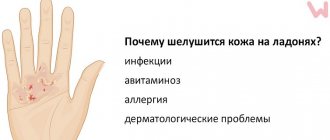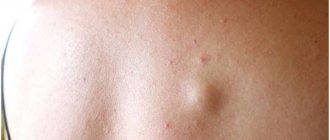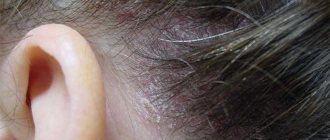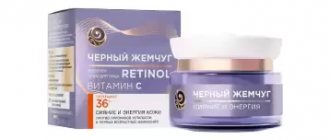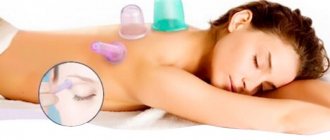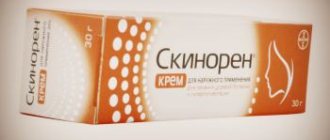Problems with skin rashes are often associated not only with adolescence in adolescents. Sometimes the most harmless small pimple can turn into an inflamed abscess, followed by slow healing. Many adults already know where purulent pimples can appear. As a rule, they can rash in the face, back, chest, and so on.
Suppuration of a pimple can be a consequence of self-squeezing out the acne. Lack of sanitation leads to numerous inflammations, and effective treatment of purulent acne already requires the intervention of antibiotics.
It's no secret that frequent purulent rashes spoil the skin and worsen the appearance, but few people understand how dangerous these inflammations are for the human body as a whole. After all, inflammation can spread to healthy areas and instantly spread through the blood throughout the body.
How does this happen
Young girls are especially complex, but this is not pleasant for boys either. Most often, such rashes are caused by a cold. We have sebaceous ducts on our skin. If you don't take good care of oily or combination skin, they can become clogged with sebaceous plugs. Inflammation occurs and pus forms under your skin. From above it looks like tubercles. If you press on them, you will feel pain. We need to get rid of them.
Factors
To overcome a disease, it is necessary to establish the factors and causes that provoked it. Then, the doctor will prescribe a course of treatment and you will get rid of subcutaneous acne. Remember, such acne cannot only be masked with cosmetics. The source of the disease will grow and then such acne will be more difficult to treat. If you do not need complications, immediately consult your family doctor. We have already found out that the sebaceous glands do not function properly:
- - sebum secretion occurs with disturbances;
- -the ducts of your sebaceous glands are now clogged;
- -in the glands that are clogged due to impaired metabolism, inflammation begins;
- - skin bacteria act in such a way that acne appears under the skin. This is unpleasant and there is a painful sensation when pressing them;
- - problems in the gastrointestinal tract;
- - hair follicles grow quickly or is it hyperkeratinization;
There are disturbances in the endocrine system. If there are acne on the chin, this is a 100% sign. You need to get rid of the main cause of the disease, otherwise acne will appear periodically, which is unpleasant.
Types of acne and methods of treatment
The word “pimple” is a collective term that is popularly used to describe the entire spectrum of dermatological imperfections. In medicine, the following types of acne on the face are distinguished:
Comedo
This is what a future purulent pimple arises from. Hair follicles (pores) become clogged with sebum, dead cells, impurities and/or cosmetics. Further development of the process is possible according to two scenarios, according to which two types are distinguished.
Closed comedones (whiteheads / milia / millet) - resemble dense, white, protruding balls (1-2 mm in diameter), covered with a thin layer of epidermis. Because of them, the terrain becomes lumpy. The contents of the pore are localized deeply and are blocked from the external environment. Therefore, the color of sebum remains yellowish-white, for which they are also called wen.
Characteristic for combination and oily skin types. There is no pain or itching from them. Inflammation occurs when tissues become infected. The result is scars, scars.
Treatment. Various types of peeling are suitable: mechanical, chemical, vacuum, ultrasonic. For care, you should choose sebum-regulating products (masks, gels, creams).
Open comedones (blackheads) - unlike whiteheads, are not covered with a layer of keratinized cells. The pores are open, and the sebaceous plug is exposed to air and oxidized by oxygen. Therefore, the fat darkens, becoming black.
Treatment. First of all, proper care taking into account your skin type, regular chemical peels and other exfoliating methods (clay masks, warming masks, gommage, scrubs, rolls and film masks).
Important! All skin care products and decorative cosmetics must be marked “non-comedogenic.”
When an infection enters a comedone, two types of red pimples are formed: papules and pustules.
Papule
This is the name of a full-fledged pimple in the form of a lump, tubercle or ball. These are monochromatic formations, the color of which varies from red to bluish. During palpation they turn pale, turn white due to compression of the vessels, and then return to their original color. When pressing, severe pain is felt - a sign of inflammation. There is pus inside the papule, the adjacent skin is noticeably swollen. If they form in the upper layers of the skin, they dissolve without a trace. When deep-seated, this type of acne leaves behind scars.
Treatment. You won’t be able to get rid of them on your own and it’s not worth it, since the purulent focus is located deep in the dermis. When squeezed out, the infection can spread to healthy areas, as well as swelling, and even sepsis is possible. The dermatologist will select combined methods: reviewing the diet, giving up certain types of cosmetics, and the correct selection of skin care products. The dermatologist will select acne spot treatments and drying lotions. They should contain components such as benzoyl peroxide, salicylic acid and zinc.
Pustule
Such a pimple arises either on its own or from a papule. In contrast to the latter, it resembles a highly swollen ball, which at the base has a red, inflamed border and a head with liquid or white/yellow pus in the center. This is the result of the proliferation of bacteria - streptococci, staphylococci - in the pores. Once ripe, the pustules burst. The resulting wound makes the human body vulnerable to the penetration of new bacteria. They cause great discomfort to their owner, as they are painful even at rest. In addition, scars remain as a memory of them.
Treatment. If the epithelium is prone to forming pustules, it is worth choosing sebum-regulating creams and serums as care products. Pharmaceutical drying and anti-inflammatory drugs based on alcohol and salicylic acid are effective for treatment. Iodine also does a good job.
This is the name of a severe and painful form of acne. They look like several papules and pustules connected to each other by fistulous ducts deep in the dermis. The cause is hormonal changes, which is typical for adolescents, but also occurs in adults. If squeezed out, they spread under the skin and cause widespread inflammation. After healing, keloid scars form.
Treatment. It begins with a consultation with a dermatologist and a hormone test. Sometimes areas of inflammation are injected with cortisone to stop the inflammatory process. Cold compresses help slow down the spread of infection. It is important to maintain cleanliness and promptly exfoliate the stratum corneum using chemical peeling. In advanced cases, creams and serums with vitamin A are used.
How does a pimple occur?
Sebaceous glands are located throughout the body. They help hair and hair grow normally. Lubricate them with lard. If pathogenic microbes enter these glands, they will mix with sebaceous secretions and the duct will be blocked with a plug. Now sebum secretion cannot occur normally and a pimple develops on your face.
Why does the sebaceous gland malfunction?
The condition of your skin shows how good everything is in your body. If acne appears on any area of the face, this indicates inflammation in certain internal organs. If you know the interpretation, you will be able to understand which internal organ’s activity should be normalized. In addition, it will become clear which harmful effects to get rid of first:
In the forehead area
- This means there are disturbances in the intestines. The microflora changes for the worse under the influence of stress, when the body is weak after an illness, or during depression. This can provoke the development of colitis or dysbacteriosis.
Causes of purulent acne
The human body is a well-oiled mechanism, but still, for one reason or another, it can malfunction. The doctor can make an initial diagnosis based on the skin and oral cavity. But for a complete diagnosis, the doctor needs to understand the characteristics and reasons for the appearance of purulent acne in the patient, and this, as a rule, is only shown by additional studies.
Very often, after examinations, it becomes clear that purulent inflammation, both on the face and throughout the body, is a consequence of improper functioning of the gastrointestinal tract, a malfunction in the hormonal system, allergic reactions, and so on.
The main factors that provoke inflammation of acne:
- clogged pores due to increased activity of the sebaceous glands and sweating;
- thickening of the epidermis and poor renewal;
- taking hormone-containing drugs;
- regular use of antibiotics leads to the formation of pus much faster;
- during menopause in women, as well as as a precursor to menstruation;
- Constant stressful situations lead to malfunction of human organs, which also causes the formation of suppuration.
As a rule, modern people experience constant stress. It’s rare that you have the opportunity to visit a beauty salon to cleanse your skin. Many people do not pay much attention to acne breakouts and are in no hurry to properly get rid of the skin problem.
The inability to regularly perform skin cleansing procedures and obtain competent advice from a specialist leads to the fact that products are purchased independently, regardless of skin type.
It is very important to remember that when choosing cosmetics, you should take into account all the features of your skin. Also, frequent use of decorative cosmetics, including foundation and powder, can lead to irritation on the facial skin.
With their regular use, the pores become clogged and begin to become inflamed. But illiterate people continue to mask the pimple with foundation, thereby provoking greater suppuration.
An important factor in the appearance of a rash can be allergic reactions, malfunctions of the immune system, bacteria, and so on. It is forbidden to touch pimples and acne on the skin with dirty hands, much less squeeze them yourself.
Subcutaneous inflammation on the face
painful and dangerous. You need to get rid of them as quickly as possible. If it happens that you press hard on such a pimple, pus can go through the vessels into the blood and sepsis will occur. When you notice inflammation in time, you can try to fight it on your own. If the case is advanced, be sure to see a doctor. He will determine the causes and prescribe a course of treatment that will completely relieve you of these problems. If you have advanced the disease, the course of treatment will be relatively long.
Treatment methods. Modern methods (opening and drainage of the pathological process)
With a scalpel
Boils, carbuncles, hidradenitis, abscess after pre-treatment with antiseptics are opened using a scalpel, followed by removal of necrotic masses and treatment of wounds with disinfectant solutions. After cleansing, the wound is drained.
CO2 laser
This method is based on carbon dioxide and is widely used in the removal of purulent-inflammatory processes, with minimal burns. After this intervention, the skin does not form scars or depigmentation. This method has virtually no contraindications.
Radio wave method using the Surgitron apparatus
An ideal method for the treatment of boils, carbuncles, abscesses, hidradenitis and purulent wounds. The method is based on the effect of high-frequency waves on the affected area. Bloodlessly removes all pathological tissue with micron precision. After the intervention there is no swelling, redness and no scars.
Local physiotherapy
Local physiotherapy is aimed at increasing the skin's resistance to the infectious agent. The post-operation area, when exposed to physiotherapeutic procedures, quickly forms granular tissue with an obstacle to tissue sclerosis.
Systemic physical therapy (intravenous ozone therapy, ILBI, intravenous ultraviolet blood irradiation)
This procedure is appropriate for repeated furunculosis, carbunculosis and post-infectious complications. Autohemotransfusion using treated venous blood using special technology gives excellent results in case of relapses of pyodermal origin. There is regeneration of blood cells and an impulse to strengthen the immune system.
Adviсe
In the 21st century, when homes have running water with a constant supply of hot water, it is not difficult to maintain personal hygiene and wash daily. Thanks to this, you will not have to look for the roots and causes of the disease later. Be especially careful and scrub your skin thoroughly with a washcloth and soap if you have oily skin. The sebaceous glands will secrete oil and if they are not mechanically cleaned daily by washing with soap, gel, foam, etc., the pores may become clogged. This will provoke inflammation and possibly the maturation of subcutaneous acne.
How to get rid of an abscess yourself
The main reason for infection of a large area of skin, or worse, internal organs, is failure to comply with sanitary conditions when squeezing out suppuration.
Before getting rid of a purulent pimple at home, you should wash your hands very well and disinfect the inflamed area. You should know which areas of the face are the most vulnerable and require increased caution.
